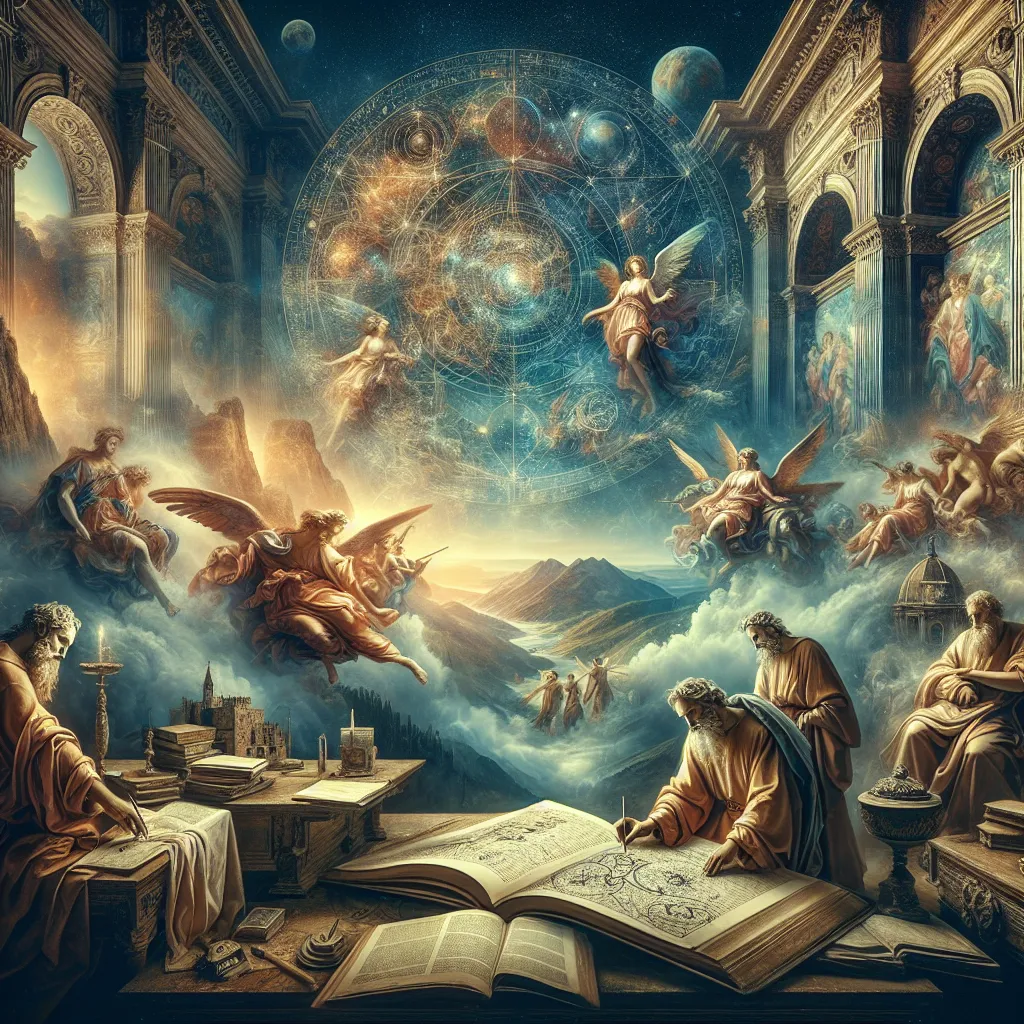
- Published on
- Authors

- Name
- You
The Decline and Legacy of Gnosticism
Gnosticism, an ancient spiritual movement known for its intricate views on knowledge and the divine, leaves us puzzled yet fascinated by its rise and eventual decline. Tracing these mystical threads not only unlocks a treasure trove of spiritual wisdom but opens pathways in understanding the evolution of Western esotericism and modern spirituality. Let’s embark on an enchanting journey from Gnosticism’s heyday to its enduring legacy.
The Flourishing of Gnosticism
Gnosticism emerged and flourished around the 1st and 2nd centuries CE, marking a vibrant period of religious and philosophical diversity. Its core tenet was gnosis—a profound, direct knowledge of the divine. The Gnostics viewed the material world as flawed, crafted by a lesser divine being, the Demiurge. They believed that hidden within each human was a divine spark, yearning to return to the higher, true God.
| Key Concept | Description |
|---|---|
| Gnosis | Direct, mystical knowledge of the divine. |
| Demiurge | The lesser divine being who created the material world. |
| Divine Spark | The hidden divine essence within humans. |
Gnostic texts, like those found in the Nag Hammadi Library, reveal sophisticated narratives and wisdom teachings that were in direct conversation with both mainstream Roman religion and early Christian thought.
The Decline: From Happening to Heresy
The downfall of Gnosticism parallels the rise of orthodox Christianity. As the early Christian church consolidated power, it sought uniformity in doctrine. The diverse, often esoteric beliefs of the Gnostics were deemed heretical.
Theologians like Irenaeus of Lyon launched vigorous campaigns against Gnostic teachings, labeling them dangerous distortions of true faith. By the late 4th century, Gnosticism had been largely suppressed, relegated to the fringes of religious discourse.
| Catalyst for Decline | Explanation |
|---|---|
| Orthodox Christianity | Consolidation of doctrine and ecclesiastical power marginalized divergent beliefs. |
| Theological Oppression | Church Fathers vocally opposed and condemned Gnostic texts and teachings. |
| Political Edicts | Imperial support of orthodox Christianity led to increased persecution of heretical groups. |
The Undying Embers: Legacy and Influence
Despite its decline as an organized movement, Gnosticism’s influence endured, seeping into various streams of Western esoteric tradition and modern spirituality. Let’s delve into how its mystical wisdom persisted through the ages.
Medieval Mysticism and Hermeticism
- Medieval mystics and Hermetic practitioners excavated Gnostic themes, focusing on personal spiritual experience and direct divine communication.
- The Hermetic texts, revived during the Renaissance, echoed Gnostic ideas of inner divinity and the cosmos as a grand, interconnected whole.
Alchemy and Theosophy
- Alchemical traditions often mirrored Gnostic dualism—aiming to transmute base elements into the divine through spiritual purification.
- The 19th-century Theosophical Society drew significantly from Gnostic cosmology, advocating for hidden wisdom accessible through spiritual awakening.
Modern Esotericism and New Age Movements
- Contemporary esoteric thinkers, including Carl Jung, found inspiration in Gnostic symbology, emphasizing the psychological dimensions of spiritual knowledge.
- New Age thought promotes a Gnostic-like search for inner truth, advocating for self-realization and transcendental experiences.
| Era | Influence | Examples |
|---|---|---|
| Medieval Period | Mystical and Hermetic thought | Alchemy, Kabbalah |
| Renaissance | Revived Gnostic themes | Hermeticism, Rosicrucianism |
| Modern Era | Esoteric and New Age movements | Jungian Psychology, Theosophy |
Conclusion: A Phoenix from the Ashes
Though traditional Gnosticism may have dwindled, its profound insights and transformative ideas continue to shape the landscapes of Western esotericism and modern spirituality. Whether through mystical literature, psychological exploration, or the esoteric quest for inner wisdom, the spirit of Gnosticism endures.
Its legacy reminds us of the perpetual human drive to seek deeper truths, to uncover the hidden layers of reality, and to transcend the mundane in pursuit of the divine.
In wrapping up, remember that the journey of understanding and enlightenment is as endless and boundless as the cosmos itself.
May you find your own path to gnosis.
Blessings on your journey.
